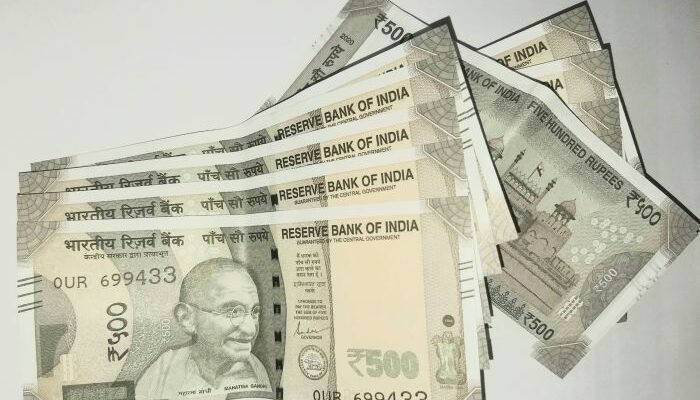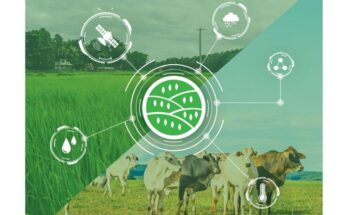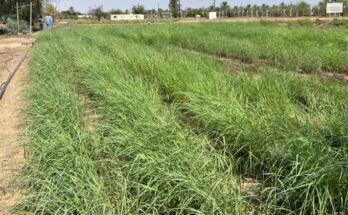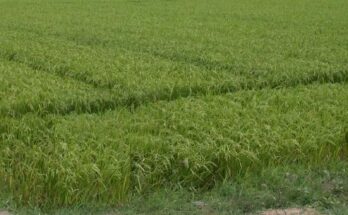Small and marginal farmers, who account for over 86 per cent of India’s farming population, play a critical role in ensuring the country’s food security. These farmers, however, face numerous challenges, particularly owing to severe weather conditions, which can result in considerable economic losses. Many developing nations, including India, have traditionally offered financial compensation to the afflicted populace through contingency funds funded by the state budget. Nevertheless, this approach has limits in addressing the rising concerns of small-scale farmers. Agricultural insurance is an achievable way to bridge the food security gap and protect these farmers’ livelihoods.
Farmers in India rely largely on meteorological conditions, rendering them vulnerable to agricultural losses due to unseasonal rainfall, droughts, floods, pests, and illnesses. Between 2015 and 2021, the country suffered significant agricultural losses. Floods and severe rains destroyed around 33.9 million hectares, while droughts claimed 35 million hectares. Furthermore, unseasonal rains and hail in March and April of this year badly harmed vital rabi crops including wheat, maize, onions, mustard, and gram, resulting in an estimated income loss of Rs 13,000 crore.
The susceptibility of small-scale farmers to these natural calamities is undeniable. In such severe situations, agriculture insurance can provide a ray of hope. This insurance offers small and marginal farmers the required safety net, maintaining their financial stability during and after a disaster.
You may also like to read: Indian Bank collaborates with TAFE and TMTL for tractor financing
Agriculture insurance facilitates post-disaster recovery by allowing small and marginal farmer policyholders to obtain compensation in the case of an insured danger occurrence. This compensation could serve as a lifeline for farmers who would otherwise be unable to recoup losses caused by catastrophic weather occurrences. When compared to compensation through contingency funds, the relevance of this insurance is underscored by the fact that it removes ambiguity in payment and qualifying restrictions.
One of the key benefits of agriculture insurance is its capacity to provide immediate pay. When a farmer’s crop is destroyed due to unforeseeable weather occurrences, an insurance claim may be completed rather quickly, allowing the farmer to get back on their feet. Waiting for government aid from contingency funds, on the other hand, can be a lengthy and unpredictable procedure.
Furthermore, insurance plans are tailored to the needs of individual farmers, allowing them to select the coverage that best matches their situation. This flexibility guarantees that farmers are not overwhelmed with exorbitant premiums and may choose insurance appropriate for their risk levels and financial capacity.
Agricultural insurance also promotes ethical farming practices. Farmers insured against weather-related hazards are more inclined to use modern, efficient farming methods. This move has the potential to boost agricultural output and, as a result, contribute to food security. Furthermore, it relieves the government of the responsibility of providing financial assistance to disaster-affected farmers, allowing public monies to be devoted to other essential sectors.
You may also like to read: ICRISAT-Corteva joint research decodes pearl millet’s climate resilience and nutritional secrets
Besides its immediate benefits, agriculture insurance could provide long-term benefits. It fosters investment in small-scale farmers’ farms by providing them with financial certainty. These investments have the potential to increase agricultural yields and produce quality, eventually contributing to the nation’s food security. The economic security provided by insurance can also prevent migration from rural regions, assisting in the preservation of the agricultural workforce.
The efficacy of agricultural insurance in closing the food security gap is dependent on knowledge and accessibility. To maximise the advantages, government officials and insurance firms must work together to guarantee that these insurance products reach the small and marginal farmers who need them the most. Simplified processes, simple regulations, and outreach programmes can go a long way towards broadening agricultural insurance’s reach.
In conclusion, while small and marginal farmers represent the backbone of India’s agricultural economy, they confront many hurdles as a result of catastrophic weather occurrences. Traditional methods of providing compensation, such as state-funded contingency funds, have difficulties in meeting the needs of customers adequately. Agricultural insurance provides a practical answer by paying out in a timely and definite manner in the case of an insured danger. It not only safeguards the lives of small-scale farmers but also promotes responsible farming practices and long-term agricultural investments. To bridge the food security gap, we must encourage small-scale farmers to get agricultural insurance, thereby assuring a more resilient and prosperous future for them and the nation.
(Rohit Boda is the Managing Director of JB Boda Group. Views expressed in the article are author’s own.)





